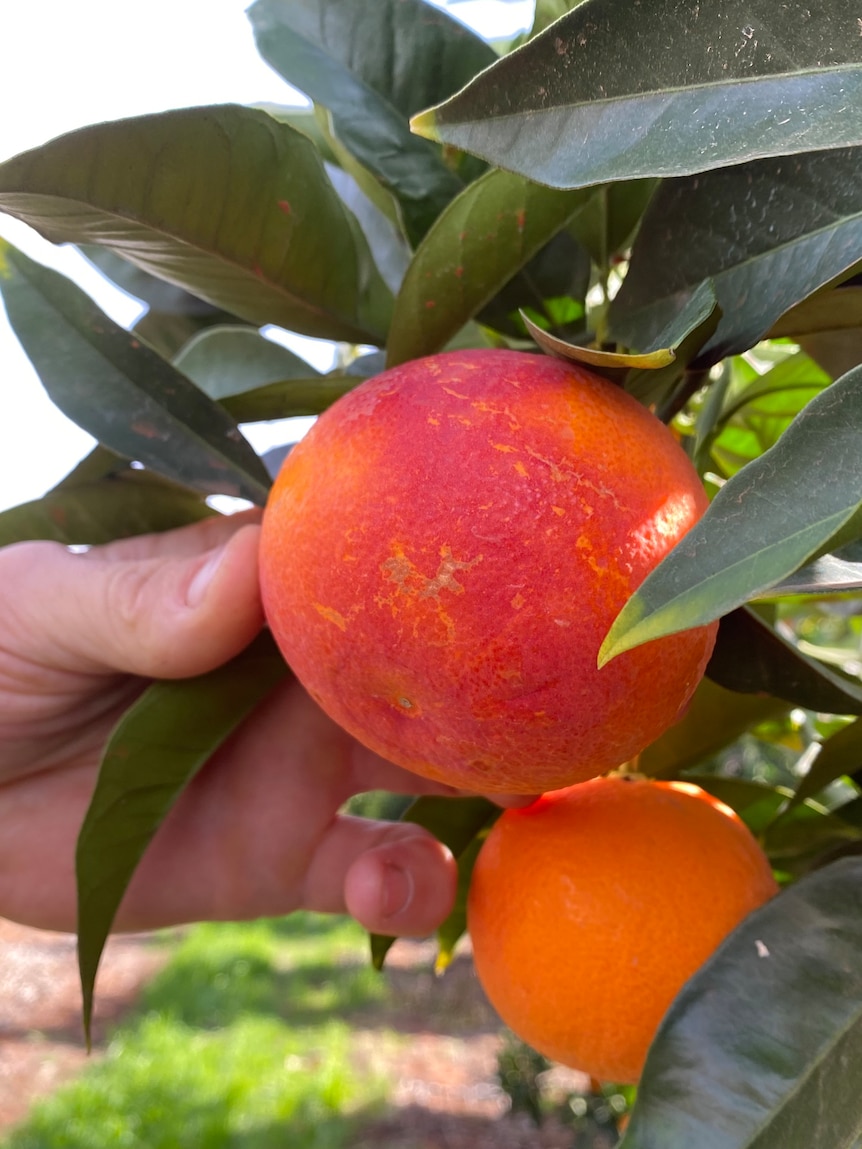In short:
Riverland Citrus growers say they haven’t experienced an extreme frosty winter since the 1980s.
The Bureau of Meteorology found that there will be fewer cool days to induce flower buds on orange trees, which may impact production.
What’s next?
Renmark’s maximum temperature is projected to warm on average by 1.1 degrees by the 2050s.
Longtime Riverland locals remember the brutal winters and scorching summers of their younger years, but have noticed the frequency of these extremes has been on the downturn.
Data from the Bureau of Meteorology indicates trends are shifting towards warmer winters and major temperature shifts by 2050.
Peter Walker moved to Sunlands, near Waikerie, in the 70s and remembers grappling with the harsh environment in his early farming years.
“When I first started, I remember we seemed to have a lot more colder mornings and frosts — almost every day during the navel harvest season,” he said.
“In the 80s, those frosts didn’t just destroy the fruit, they also destroyed the trees, as temperatures reached below minus six — the ice on the trees never melted.
“That was really devastating and everybody remembers ’82 quite vividly as a black part of the citrus growing years,” he said.
“We didn’t get an income there for two years after that.”
Now in 2024, Mr Walker said he could count the number of frosty days on one hand.
“I’d say this year we’ve only had maybe four or five really frosty days that are about minus two and that’s quite bizarre,” he said.
“Last year, we had a few more, but nothing damaging to the tree or the fruit.”
Temperatures set to increase by 2050
According to the Department of Water and Environment’s latest State of the Climate report, Renmark’s maximum temperature is projected to warm on average by 1.1 degrees by the 2050s.
It is also projected to experience an average of 10 more days a year that are over 35 degrees, by the 2050s.
Information from the BOM shows changes such as these can have consequences for agriculture.
It says Renmark is projected to experience “fewer cool days to induce flower buds on orange trees, which may impact production”.
Mr Walker said those colder days were vital for the citrus growth cycle and were a major part of the production process.
“If you don’t get cold weather, you don’t get the fruit maturing quickly or colouring up as quick,” Mr Walker said.
“They might be mature inside, but you need that colour and the cold weather brings the colour out.”
The BOM also reported temperature changes, with hotter days now impacting agriculture from all farming sectors.
Experts agree weather trends are changing
University of Melbourne climate scientist Andrew King said there could be major consequences for small shifts in average temperature.
“We’re seeing lots more high-temperature extremes and fewer cold-temperature extremes, even though it might not feel like that at the moment with the recent cold weather.
“We’re seeing hotter heatwaves, and a lot more of them than we used to and that’s very clear.”
Sixty years on, from the extreme frosts of 1982, Mr Walker said he hadn’t experienced something like it since.
“In the past couple of years it doesn’t seem to be so cold and seems to not be so hot,” he said
“We are still having frosts, but we don’t have so many severe frosts. And they’re only for a short period.”
Get our local newsletter, delivered free each Tuesday




